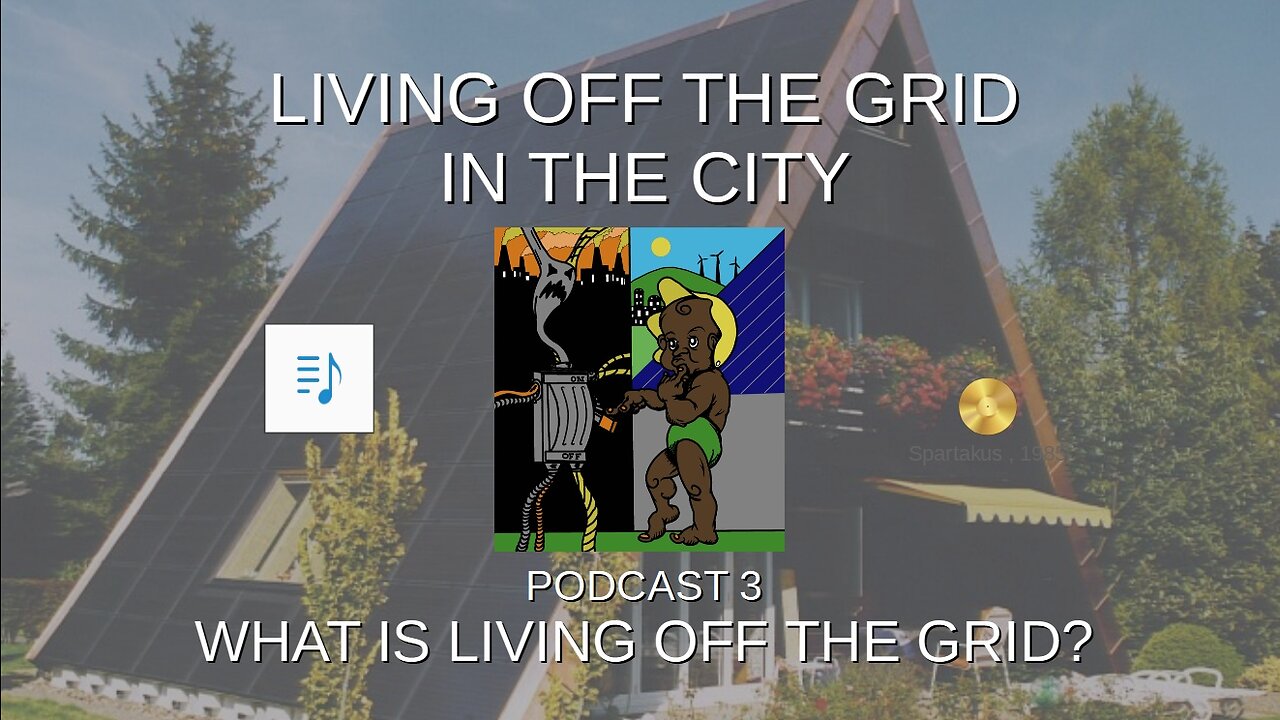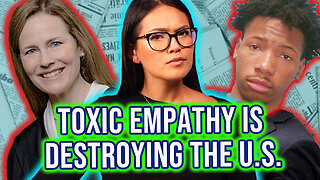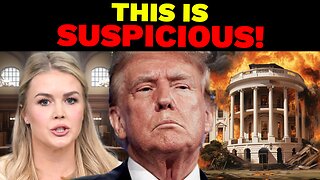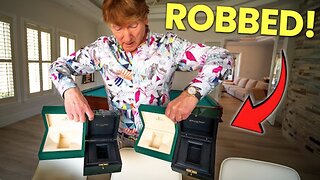Premium Only Content

03 What is living off the grid?
Living off the grid in the city podcast 3. Living off the grid is simply living as free as you want to live. Free of economic subjugation, over-taxation, manipulation, and control from entities and individuals. It may be; living without dependence to others that don’t share your well-being or best-interests. It is, having more choice! Living off the grid, may be, living without unwanted ties and commitments to others, and not living under any requirement to enter into dependence and commitment to others. In the technical sense; living off the grid is: living, by choice, without connections to an electric power provider; water services provider; communications provider; food provider; or fossil fuel provider. It is living free of unwanted external providers of goods and services; by commitment or contract, which often occur under the threat of economic and physical punishment. Later, I will explain how these providers attempt to punish you when you deny, or can’t pay for, their services. More importantly; living off the grid is being self-sustained, in the goods and services for which you are off the grid. Simply put, living off the grid is having the right and the freedom to get goods and services only when you need them, want them, and freely inquire for them. As we often lack the control of how much services we receive. Living off the grid can be partial or extensive; with freedom and choice as to how much and how often you use goods and services. And, if you choose others to provide goods and services to you. So, living off the grid is about maintaining control over ‘who’ and ‘how much. Additionally, living off the grid is a powerful way to contribute to planetary decarbonization. Decarbonization is the move-away from fossil fuels to prevent further damage to the environment and prevent its expected dire effects. As I will show, the environment should be the top reason to move off the grid. When you live off the grid, you phase out your use of utility electricity, or any fossil-fuel-driven technologies, simply because they contribute to environmental pollution, and because they are generally more costly. When living off the grid; you may provide in part or in whole: your own water, food, and electricity, and means of communications. All these goods and services could and should be free of payments, and free of commitments to any company or government. So, I believe living off the grid can bring true freedom and democracy to your home, place of work, and community; through self-sustainability and greater power as an individual. Lastly, it should never be hidden that, in our grid-connected society, living off the grid is difficult. It is often frowned-upon, looked at with contempt, and even treated with hostility. It will require extraordinary determination, high skill, consistent good-decision-making, and lots of work. Yet, the fulfillment will be hard to quantify. Living off the grid is, by no means, a necessarily lone endeavor. It can definitely flourish in groups; perhaps even in larger communities such as towns and cities. living off the grid requires much study of science and technology; the smart management of resources; and increased knowledge and appreciation of your environment.
Hector Vladimir 2023©
Youtube channels: @hbcsolarpvtech @HBCSolarPVTechByron
Living Off the Grid in the City podcast playlist (English):
https://www.youtube.com/playlist?list=PLyWqApEqGtc5Wpx9yCm5Z2eop7fURphqM
Facebook page:
https://www.facebook.com/profile.php?viewas=100000686899395&id=61552559207892
Patreon page: www.patreon.com/hectorvladimir
Substack page: https://hectorvladimir.substack.com/
-
 2:44:48
2:44:48
Price of Reason
12 hours agoTrump Tariff Mania CONTINUES! China vs Hollywood! Bezos Under FIRE! Sweet Baby Inc FAILS Again!
31K4 -
 2:39:40
2:39:40
TimcastIRL
9 hours agoTrump To Impose 104% TARIFF On China At Midnight In NUCLEAR BOMB On Global Trade | Timcast IRL
248K122 -
 1:54:27
1:54:27
Glenn Greenwald
11 hours agoAs Tariffs Dominate News, Trump and Netanyahu Make Increasingly Militaristic Threats; Plus: Mixed Supreme Court Ruling on Deportation Powers | SYSTEM UPDATE #435
162K184 -
 1:01:27
1:01:27
Man in America
11 hours agoMAHA Feels Betrayed by RFK Jr.—What's REALLY Happening? w/ Sayer Ji
80.6K53 -
 1:15:15
1:15:15
Savanah Hernandez
9 hours agoToxic Empathy Is Ruining America
60K49 -
 1:39
1:39
Stephen Gardner
12 hours ago🚨BREAKING: Karoline Leavitt MAKES STUNNING announcement about Trump's Assassin!
66.4K22 -
 1:32:10
1:32:10
Joker Effect
7 hours agoRumble is about to get a new genre!! Are you ready to take it on? Time to fight fire with fire!
65.3K8 -
 3:27:44
3:27:44
SilverFox
7 hours ago🔴LIVE - ELDEN RING - ZERO DEATH CHALLENGE - ATTEMPT 5
53.2K -
 17:17
17:17
SantaSurfing
10 hours ago4/8/2025 - Modern Day Wealth Managers! The Rewards of planning and dreaming big!
56.8K19 -
 26:40
26:40
Producer Michael
14 hours agoI WAS ROBBED IN MY NEW HOUSE!
60.1K3